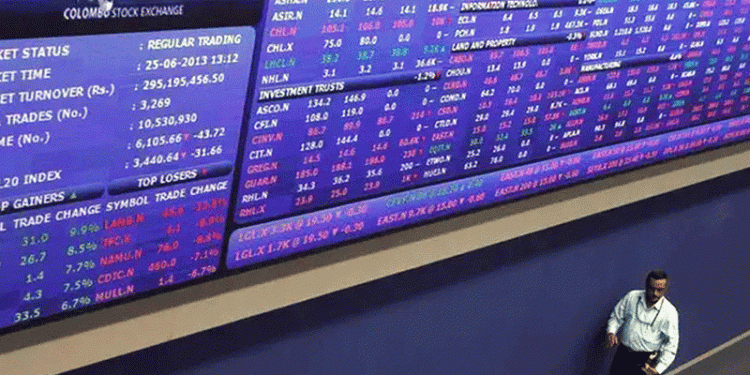NEW YORK (AP) — Once again, it was the Federal Reserve to the rescue for the stock market.
Major U.S. indexes rose broadly Wednesday, helped by a report out of the nation’s central bank that showed Fed policymakers want to be absolutely certain the U.S. economy had recovered before starting to raise interest rates.
Confident that the Fed won’t be raising rates until sometime next year, investors once again embraced some of the market’s more risky names. Biotechnology and technology stocks, beaten down over the past week, were among the biggest gainers.
Wednesday’s trading had one broad theme: risk on. Investors sold utility and telecommunications stocks — which are usually less volatile, rich-dividend companies — and piled into areas that typically benefit from a growing economy: materials makers, industrial companies and technology stocks.
The Dow Jones industrial average rose 181.04 points, or 1.1 percent, to 16,437.18. The Standard & Poor’s 500 index jumped 20.22 points, or 1.1 percent, to 1,872.18 and the technology-heavy Nasdaq composite rose the most, up 70.91 points, or 1.7 percent, to 4,183.90.
Facebook rose the most in the S&P 500, jumping 7.3 percent, followed closely by biotech company Vertex Pharmaceuticals, up 7 percent. Other names that saw renewed investor interest were biotech companies Boston Scientific, Biogen and Celgene and in technology, Priceline, Red Hat and ETrade.
The Dow Jones Transportation Average jumped 1.6 percent. Investors closely watch the “Dow Transports,” as the index is nicknamed, on the theory that a growing economy will mean companies will have to ship more products, increasing the profits of transportation companies like airlines, railroads and trucking companies.
At their March policy meeting, Fed policymakers debated over when the bank should start raising interest rates. Traditionally the Fed’s main policy tool for regulating the U.S. economy, short-term rates have been near zero since 2008 in an effort to encourage borrowing and economic growth, all of which is good for stocks.
Now that the economy has mostly recovered from the recession, an increasing number of policymakers believe it’s time for the Fed to start raising rates. The question is when.
“We know higher interest rates are coming, but we don’t know exactly when, whether it’s 2015 or 2016,” said Tom di Galoma, head of fixed income rates at ED&F MAN Capital Markets.
Investors always keep a close eye on the Fed, but they’re particularly sensitive these days because the central bank is in the process of winding down its economic stimulus policies. Investors worry that the bank might act too quickly and choke off the economic recovery.
The Dow soared 192 points on Feb. 11 after Janet Yellen, in her first public comments since taking over as head of the Fed from Ben Bernanke, said she would continue the Fed’s market-friendly, low-interest rate policies.
Confident that interest rates and inflation would remain low, investors bought bonds Wednesday, particularly bonds that have shorter maturities. The yield on the two-year Treasury note dropped to 0.36 percent from 0.39 percent late Tuesday, a relatively big move for that security. Yields on the three-year and five-year notes made similar moves.
Investors also got a dose of good news from Corporate America.
Aluminum giant Alcoa reported an adjusted first-quarter profit that was well ahead of analysts’ forecasts. The aluminum maker is typically the first large U.S. corporation to report its results every quarter. Alcoa rose 47 cents, or 4 percent, to $13.
Alcoa’s results helped push other mining and materials stocks higher. U.S. Steel rose 3 percent; industrial parts company W.W. Grainger climbed 2 percent and the auto parts company Delphi increased 3 percent.
Investors expect that corporate earnings for the first three months of the year will be held back by the severe winter weather that plagued most of the country. Earnings are expected to fall 1.6 percent from a year earlier, according to financial data provider FactSet. If that forecast proves correct, it would be the first time corporate profits have fallen since the third quarter of 2012.
“We’re going to see lousy results, but I think we’ll still see optimistic forecasts from companies,” said Jack Ablin, chief investment officer with BMO Private Bank in Chicago. “Companies lost a lot of business in the first couple months of the year, but most of that business, I suspect, will come back.”
In other company news:
— Intuitive Surgical, the maker of robotic surgical equipment, slumped $33.20, or 7 percent, to $456.64. The company warned that first-quarter sales would be drastically lower than previously expected.
— La Quinta Holdings, the parent company of the hotel chain La Quinta Inns, rose 12 cents, or 0.7 percent, to $17.12 on its first day of trading. La Quinta is owned by the private equity firm Blackstone Group and was taken public this week in a $650 million IPO.
– Ap


























